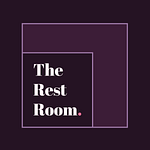I spent most of my formative adult years having to leave every job and opportunity that I had because I was too unwell to keep up. I’d push myself until I’d crash for months on end, leave the job, recover, try again somewhere else, and so the cycle would continue. All I wanted to do was work, to “live up to my potential”…but I couldn’t figure out how to do it in a sustainable way.
And I’m not alone. The average person spends about 35 hours a week at work, but what does that look like for people with chronic and energy limiting conditions?
For many, those hours are just not feasible, and pushing to try and work in “traditional” ways often ends up making them even more unwell. Some people are not well enough to work at all, but there are those who may be able to work small amounts, if only they had an accessible role and the support to do it.
But as so many of you will know, there aren’t that many opportunities out there for disabled and chronically ill people to access flexible, meaningful employment. It’s 2022 and our society is still very much stuck in a Monday to Friday, 9-5 mentality.
Even as we saw the pandemic change things for the better for those of us who need remote and flexible working, it’s not been a surprise to see that in calls to “return to normal”, these ways of working are being demonised once again.
Why is it that the case? Why are employers so reluctant to recognise how much value disabled and those with chronic illness can bring to a workplace, whether can work full time/show up in person or not? How can we, as people living with chronic illnesses, find ways to navigate work? And what does an inclusive company for people living with energy-limiting conditions look like?
These are the questions that we’re going to be exploring over the next couple of episodes of The Rest Room.
This week, we’re joined by good friend of the Rest Room, Pippa Stacey, a writer, blogger and public speaker who works with the UK charity Astriid, which matches talented people with long-term health conditions with meaningful work. We’re also joined by Bruce Daisley, who’s a best-selling author and self-proclaimed workplace culture enthusiast.
We discuss the state of inclusive employment for chronically ill people, the challenges that people with long-term conditions face when trying to find (or stay in work), and some of the wider trends happening in the world of work, including the impact of the pandemic.
You’ll also hear from some of our listeners about their experiences of navigating accessible work with chronic illness, and hear a whole lot of excellent advice on how to to make sure a job is sustainable for your needs, and how to advocate for yourself in the workplace.
If you feel like you want and are able to work, even a little bit, I really hope this episode will help you navigate these tricky waters towards finding meaningful and inclusive ways of working.
To listen, you can just click play at the top of this email, or you can listen on Apple, Spotify, Amazon and Google. If you’d rather read the transcript of the episode, I’ve made that available on my blog.
Please note: if you receive this email within the first few hours of it being sent out, it might take a few hours for the podcast to filter through to some of the podcast platforms like Amazon or Spotify.
Thanks to my brilliant producer Philly Guillou at OG Podcasts, to Lucy Dove for the episode art, and to Amit Rai for my intro music.













Share this post